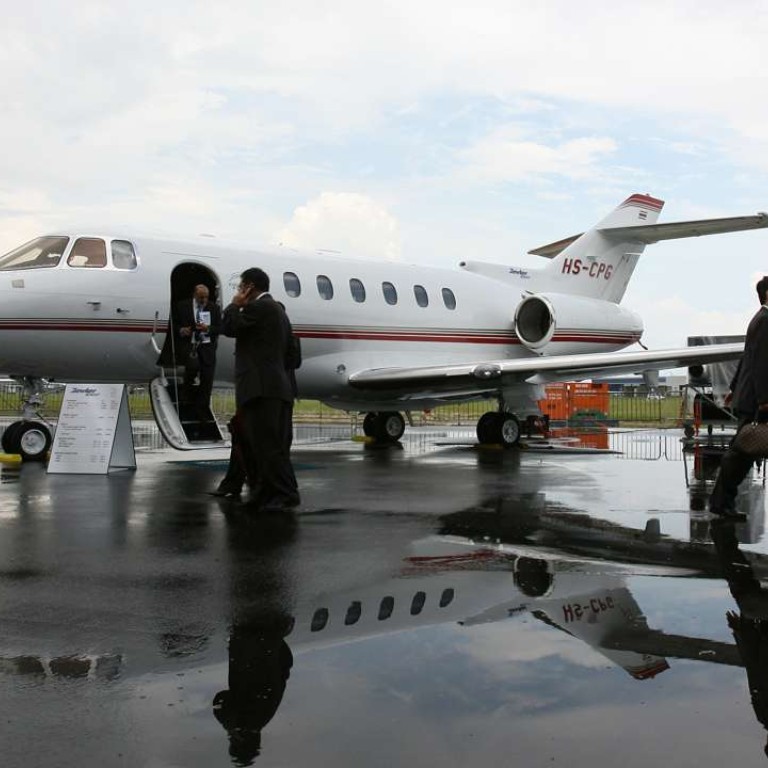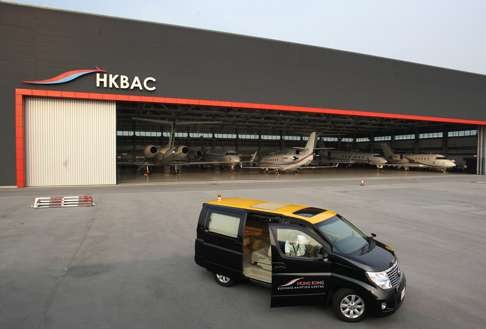
More slots, smoother service as Hong Kong rolls out red carpet for world’s private jet set
City transport chief reveals measures to boost beleaguered business aviation industry
Hong Kong is set to extend the welcome it gives to the world’s private jet set with a package of measures to boost business aviation in the city.
The plans – which include more take-off and landing slots for the growing number of high-flying business executives and tycoons for whom normal air travel isn’t an option – follow a row over abuse of the current system for booking runway slots.
The number of private jets using Hong Kong International Airport has risen steadily in recent years, with a total of 9,400 – an average of 25 a day – touching down in the city in 2015.
This has sparked fierce competition for take-off and landing slots and raised concern in the business aviation sector that private jets are being squeezed out due to the growth in passenger and cargo flights.
Unveiling the plans in the Legislative Council on Wednesday, transport chief Professor Anthony Cheung Bing-leung said the government recognised the “positive” impact of the business aviation sector.
Cheung said a review of when private jet firms could book runway slots in advance would be carried out and heavier penalties imposed for abuse of the slot allocation system.
Earlier this year, the South China Morning Post revealed that unscrupulous players in the private jet industry were hacking the booking system and selling take-off and landing slots for profit.
Charlie Mulkarski, chairman of the Asian Business Aviation Association, welcomed the move. “Whilst small in volume, the private jet industry is very significant in creating economic value for Hong Kong,” he said.

Measures under consideration include offering more runway slots at night and in the early morning, while increasing the time jet operators can make slot applications – currently a maximum of seven days in advance – as well as making the system more flexible.
Cheung said “loopholes” in the online booking system for private jet operators that led to the “speculation of slots” had been found.
The government will also explore consolidating the management of ground handling services and runway and parking slots to one agency. At present, the Business Aviation Centre, Airport Authority and Civil Aviation Department each play separate roles.
Responding to a question from lawmaker and executive councillor Jeffrey Lam Kin-fung, Cheung said: “We agree with the sector we should explore how we can have better coordination and provide a one-stop service.”
The private jet industry will meet with the three bodies today to discuss changes, improvements and penalties. Further details on the government proposals are expected to be fleshed out behind closed doors.
“We would love to see more speed, but nevertheless we are all very happy to see motion in the direction of improving the environment to continue seeing Hong Kong as an economic hub in the region, attracting business and corporations which use business jets as a productivity tool,” Mulkarski said.
“We want to see all slots and resources maximised and available for the proper use by the business jet operators, both based in Hong Kong as well as those transient to the city for business meetings.


